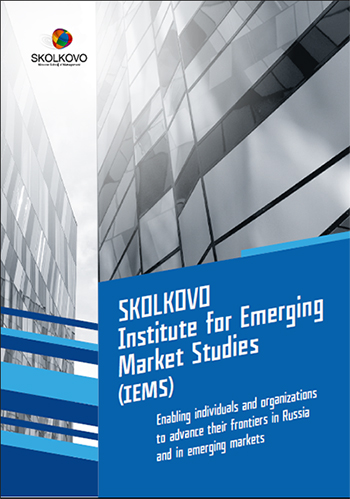The Rising Cost of Doing Business in Emerging Markets: Targeting Entrepreneurs in Tough Economic Times
The continued slow recovery of the private sector worldwide in the wake of the global financial crisis has led to high unemployment rates and high levels of discontent. Given the problems faced by the private sector in emerging markets, how have governments made it easier or harder to do business since the financial crisis hit? Put another way, how much of the downturn in the private sector internationally is attributable to government policies?
In this report authors take a look at the state of doing business in emerging markets and detail how some governments are crushing the fragile economic recovery under the weight of red tape. There has been a great deal of discussion, many headlines and countless pages written in relation to regulation during the global financial crisis, but much of literature and policy work over the past 5 years has been explicitly focused on financial regulation, in response to the perceived weaknesses in the system that led to the crisis. Much less attention has been paid to product market regulation or the regulation of business activity, where this study breaks new ground.
The study examined the business environment in both developed and emerging markets using several commonly-accepted metrics for investment climate, including the World Bank Group’s Doing Business Index, the OECD’s Product Market Regulation indicators, and the Fraser Institute’s Economic Freedom of the World Index. Discussing the pros and cons of each metric, the study uses each index to form a holistic picture of regulations in the world and finds the following key results:
- Business regulations are on the rise, albeit in different forms, with much of the increasing regulations in starting a business and in state control of business.
- The greatest increase in regulations appears to have happened in the developed countries from 2003 to 2008, it also appears to have been on the rise in many developing countries. In particular, the world saw a rapid increase in business regulation from 2007-08 as the GFC took hold.
- Business regulation increased the most of all countries in the United States from 2007-08, second only to Syria.
- There is a simple but strong correlation amongst countries that had an increase in business regulation from 2007-08 and those that showed a decrease in their capital formation. The mirror image is true, as the few countries that saw increasing capital formation from 2007-08 had an average decrease in business regulation.
Given these results, the authors conclude that the world could be moving into what OECD Head of Regulatory Reform Scott Jacobs called in 2000 “the golden age of regulation”; that is, that “the state is not withering away in the face of markets,” but rather getting larger and more intrusive. This will have negative implications for private sector development in both developed and emerging markets, and continue to hold back the world’s economic recovery.
Contact us
-
SKOLKOVO IEMS
+7 495 539 30 03
SKOLKOVO Sustainable Business Center monitoring
Leave your contact details and we will send you our monthly monitoring



